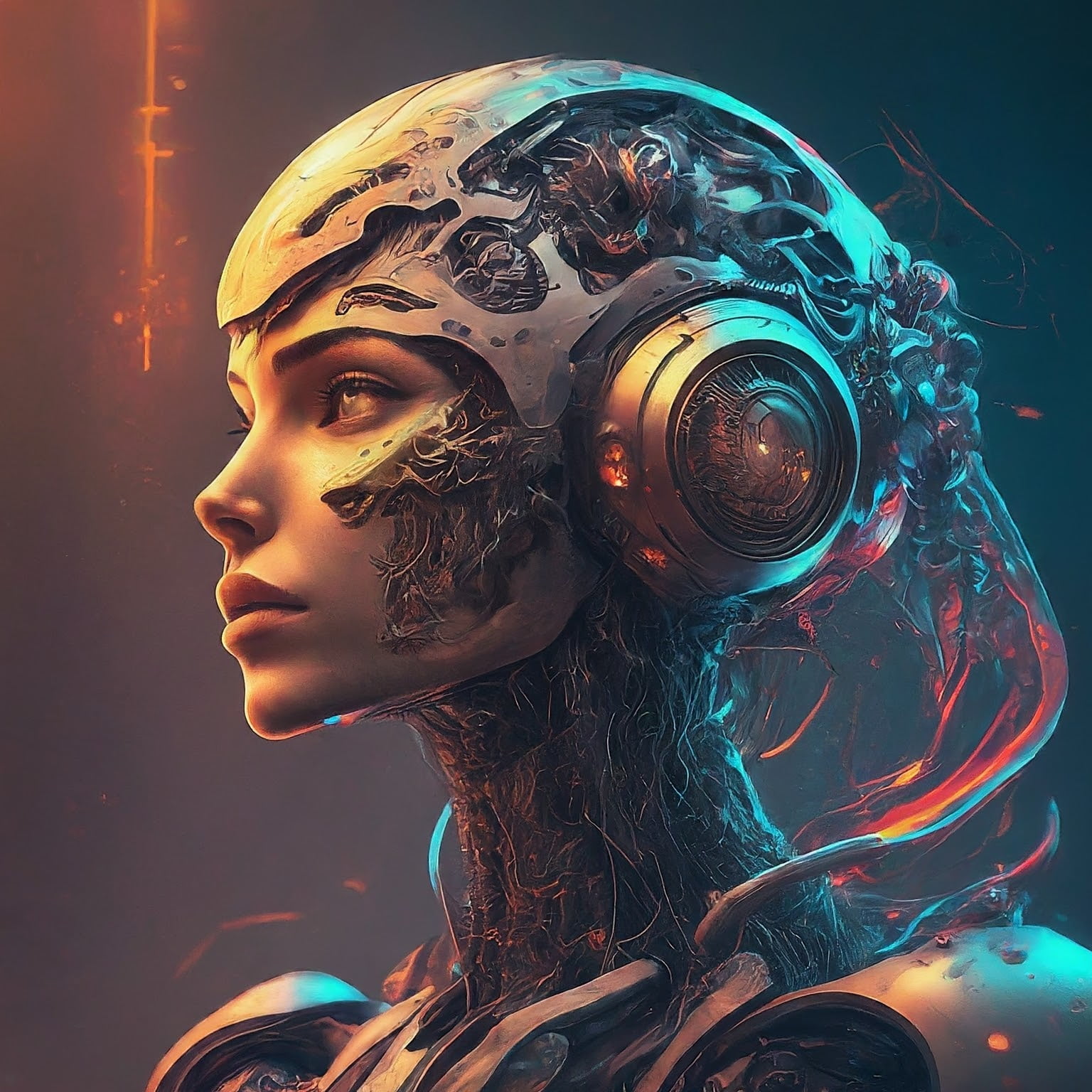Best AI Tools to Boost Student Productivity in 2025
Staying productive as a student can feel overwhelming, especially with so many responsibilities competing for attention. That’s where AI tools come in. These programs are designed to simplify tasks, organize schedules, and even offer study support. Whether it’s managing time or tackling complex projects, AI helps students work smarter, not harder. With education adapting to technology, these tools are quickly becoming essential for achieving academic success.
The Role of AI in Enhancing Student Productivity
Artificial Intelligence is transforming how students manage their academic lives. By automating repetitive tasks and offering smarter solutions, AI tools help students focus on what truly matters: learning. Below, we explore specific areas where AI significantly enhances productivity.
Streamlining Study Schedules
Keeping up with classes, assignments, and exams is tough. AI-powered scheduling apps like MyStudyLife and Google Calendar use machine learning to create personalized study plans. These tools don’t just remind you of deadlines – they analyze your workload and adjust study sessions based on your availability.
For instance, AI can identify high-priority tasks and suggest optimal times to tackle them. Got a busy day? It can shuffle less urgent tasks to another time. This customization makes sure you’re always staying productive without feeling overwhelmed.
Some tools even offer built-in reminders, so you’re less likely to forget important activities. Imagine having a personal assistant, but one that never sleeps or takes breaks. That’s the kind of convenience AI scheduling apps bring to your life.
Automated Note-Taking and Summarization Tools
Taking clear, actionable notes during lectures isn’t easy, especially when the content is dense or fast-paced. This is where AI tools like Otter.ai and Scribe come in. These apps transcribe audio into written text in real time, allowing students to focus on listening rather than frantic note-taking.
Many of these apps also summarize content. You can turn a one-hour lecture into a neat bullet-point list. This saves hours typically spent reviewing recordings or handwritten notes. Plus, AI can highlight key themes, so you immediately spot the most important details.
Apps like these make learning more accessible too. If you miss a lecture, simply upload the recording and let the app handle the rest. It’s like having a study buddy who remembers everything for you.
Improving Focus and Reducing Procrastination
Staying focused is probably one of the hardest challenges for students. Tools like Forest and Focusmate tackle this issue by using AI to help you manage your screen time and stay engaged. Forest, for example, gamifies focus. You “plant a tree” whenever you start a task, but it dies if you leave the app before finishing.
Focusmate pairs you with a virtual accountability partner to keep you on track. AI algorithms consider your preferred working style, matching you with someone who complements it. These tools aren’t just functional – they make staying productive feel rewarding.
Procrastination becomes less appealing when you have tools actively nudging you toward your goals. Think of these apps as tiny coaches in your pocket, gently steering you away from distractions like TikTok or Instagram.
By harnessing these AI solutions, students can overcome common productivity pitfalls and make the most of their academic experience.
AI-Powered Learning Platforms
Artificial Intelligence has drastically enhanced educational tools by personalizing learning experiences, streamlining support, and optimizing study habits. From adapting lessons to individual skill levels to providing 24/7 assistance, AI is transforming education. Let’s explore how different platforms make this possible.
Adaptive Learning Systems
Imagine a teacher who adjusts their lessons for every student in real-time. That’s what adaptive learning systems like Khan Academy and DreamBox do. These tools analyze a student’s progress, strengths, and challenges, then tailor their content to suit the learner’s current level.
For example, if you’re excelling in algebra but struggling with geometry, these platforms will shift focus to reinforce your weak areas. This personalized attention ensures you’re neither bored by content that’s too easy nor overwhelmed by material that’s too advanced.
Plus, these systems offer instant feedback. Missed a question? They explain the solution right away, helping you learn from your mistakes. It’s like having a private tutor – one who tracks your progress continuously and never gets tired.
AI Chatbots for Academic Support
Ever wished someone could answer your academic questions anytime, anywhere? That’s where AI chatbots like ChatGPT and Woebot come in. These tools serve as virtual assistants, providing guidance, answering questions, and even reviewing written work.
ChatGPT, for instance, helps with essay brainstorming, clarifying concepts, or tackling tricky math problems. Meanwhile, Woebot offers emotional support, helping students manage stress alongside academics. These bots don’t just respond – they learn from interactions, offering better and more personalized assistance over time.
While they’re not perfect replacements for teachers or counselors, they’re a valuable supplement to traditional support systems. They’re always there, even during those late-night cramming sessions when nobody else is around.
Language Learning with AI
Learning a new language is hard, but AI-powered apps like Duolingo and Babbel make it more manageable. These platforms use machine learning to personalize lessons, ensuring they align with your pace and preferences.
For instance, Duolingo adjusts exercises based on what phrases or grammar rules you’re struggling with. Babbel goes a step further by tailoring speech recognition exercises to improve your pronunciation. Both apps make language skills stick by using repetition and real-world scenarios.
It’s like having a language coach in your pocket. Whether you’re practicing Spanish while waiting for the bus or brushing up on French before a trip, AI ensures every minute spent studying counts.
Leveraging AI for Research and Writing
Artificial Intelligence has reshaped how students approach research and writing. With tools designed to simplify complex tasks, students can save time and focus on producing high-quality work. Let’s explore how AI enhances academic productivity in these areas.
AI-Powered Research Assistants
Finding credible sources for academic work used to mean endless hours of searching and filtering. Now, AI-powered tools like Research Rabbit and Semantic Scholar make that process a breeze.
These platforms use algorithms to quickly locate and recommend relevant papers, journals, and studies. For example, Research Rabbit allows you to build “collections” of research topics and keeps refining recommendations based on your interests. Semantic Scholar goes a step further by summarizing key points from papers, ensuring you grasp the main ideas without combing through pages of data.
Think of these assistants as personalized librarians that adapt to your academic focus. Instead of starting from scratch, you can zero in on the information you need within minutes.
Writing and Grammar Assistance
Even the most skilled writers make mistakes, especially under pressure. Tools like Grammarly and ProWritingAid are like having an editor that’s always on call. These platforms not only catch grammatical errors but also provide suggestions for improving clarity, tone, and style.
Grammarly, for example, highlights weak phrasing and suggests alternatives, while also checking for spelling and punctuation mishaps. ProWritingAid adds an extra layer by focusing on stylistic elements such as word choice and sentence flow. Both tools give students the feedback they need to hone their writing skills over time.
Using these platforms is like having a second set of eyes on everything you write, ensuring it’s polished and professional. Bonus? They also save you from embarrassing typos in last-minute assignments.
Plagiarism Detection and Citation Generators
Academic integrity is more than just a guideline—it’s non-negotiable. Tools like Turnitin and Citation Machine help students stay compliant while making the citation process significantly easier.
Turnitin reviews your work for potential plagiarism by comparing it against a massive database of published material. It provides detailed reports so you can fix unintentional issues before submitting your work. On the other hand, Citation Machine simplifies proper referencing by auto-generating citations in formats like MLA, APA, or Chicago.
These tools not only protect you but also save time spent manually double-checking references. It’s like having a safety net that ensures your work is both original and properly cited.
Collaborative Tools Enhanced by AI for Group Projects
Working with a group can be tricky. From keeping tasks organized to ensuring everyone understands their roles, there’s a lot to juggle. Luckily, AI-powered tools are changing the way students collaborate on projects. These platforms make teamwork smoother and more efficient, helping groups stay on track and meet deadlines with less fuss.
AI-Powered Planning and Task Allocation
Planning group projects becomes smoother when you use tools like Trello and Notion. These platforms incorporate AI features to make organizing and dividing tasks more intuitive.
Trello, for instance, uses automation to simplify repetitive actions. You can set up “rules” to move tasks, send reminders to teammates, or even assign work based on project progress. This feature ensures nobody misses their deadlines or forgets important updates.
Notion, on the other hand, offers a dynamic workspace for collaboration. Its AI features help by summarizing notes, generating ideas, and even suggesting next steps for your project. By integrating calendars, task lists, and files, it becomes a hub for your team’s needs, keeping everyone aligned.
With tools like these, it feels like having a personal project manager. They reduce miscommunication and ensure that no task slips through the cracks.
Real-Time AI Transcription for Meetings
Good communication is essential in group projects, and that’s where AI-powered transcription tools come into play. Apps like Rev and Otter.ai provide real-time transcriptions, making meetings or brainstorming sessions more productive.
Rev offers high accuracy, capturing detailed conversations and providing ready-to-download transcripts. This makes reviewing discussions or revisiting decisions quick and effortless.
Meanwhile, Otter.ai takes things further with live transcription and collaborative notes. You can tag teammates, highlight key points, or even assign action items within the app itself. It’s like turning your meetings into organized to-do lists in real-time.
These tools don’t just save time—they ensure that every idea, suggestion, or decision is recorded. Even if a teammate misses a meeting, they’re instantly caught up with clear, actionable notes.
AI for Stress Management and Productivity Boost
Balancing academics, personal life, and other responsibilities is stressful for many students. Letting stress pile up can harm both your mental health and productivity. Fortunately, AI is stepping in with tools designed to help you stay calm while maximizing your output. Let’s dive into how AI is shaping mental wellness and boosting productivity.
AI-Powered Meditation and Relaxation Apps
Sometimes all you need is a moment to breathe and reset. AI-powered apps like Calm and Headspace offer personalized meditation and relaxation programs tailored to your needs. These apps analyze trends in your behavior, stress levels, and even preferences to suggest guided meditations or exercises.
For example:
- Headspace incorporates AI to recommend specific meditations based on your current mood or goals. Feeling anxious? It might suggest a quick 5-minute calming session.
- Calm uses intelligent software to create personalized soundscapes or bedtime stories that encourage relaxation.
Some even gamify stress management. Track your progress over time or earn badges for completing certain sessions. It’s like having a mental health coach in your pocket, teaching you how to manage stress effectively.
Not only do these apps help you build mindfulness habits, but they also fit perfectly into a busy student schedule. Whether it’s starting your day with a short meditation or winding down before bed, they make mental wellness simple and accessible.
Sleep Monitoring and Improvement Tools
You can’t focus or be productive without proper sleep, and this is where AI-powered sleep monitoring tools come in handy. Apps like Sleep Cycle and devices such as smartwatches or fitness bands analyze your sleep patterns and suggest actionable ways to improve.
Here’s how they help:
- Sleep Cycle tracks your movements at night to determine sleep stages. Instead of waking you at a fixed time, it uses AI to wake you during your lightest sleep phase, so you feel refreshed.
- Many wearable devices offer insights on how long you’re spending in deep sleep versus REM sleep, helping you adjust bedtime habits.
These tools go beyond basic data collection. They use that data to make practical suggestions, such as adjusting your caffeine intake or optimizing your sleeping environment. Some even integrate with smart home systems to dim lights or adjust room temperatures for better sleep.
Good sleep isn’t just a luxury – it’s a necessity for performing well academically. By using AI-powered tools to improve sleep quality, students can wake up energized and ready to take on the challenges of the day.
These apps and devices create a feedback loop where better sleep leads to less stress, which in turn boosts productivity. It’s a cycle every student can benefit from.
Conclusion
AI is reshaping how students approach productivity, making learning and time management easier than ever. These tools simplify complex tasks, customize experiences, and help students focus on what truly matters.
As AI continues to advance, its role in education will only grow, unlocking even more ways to boost efficiency and reduce stress. Students should embrace these tools to stay ahead and maximize their potential.
What’s one way you’ve used AI to make your academic life easier? Share your thoughts!


